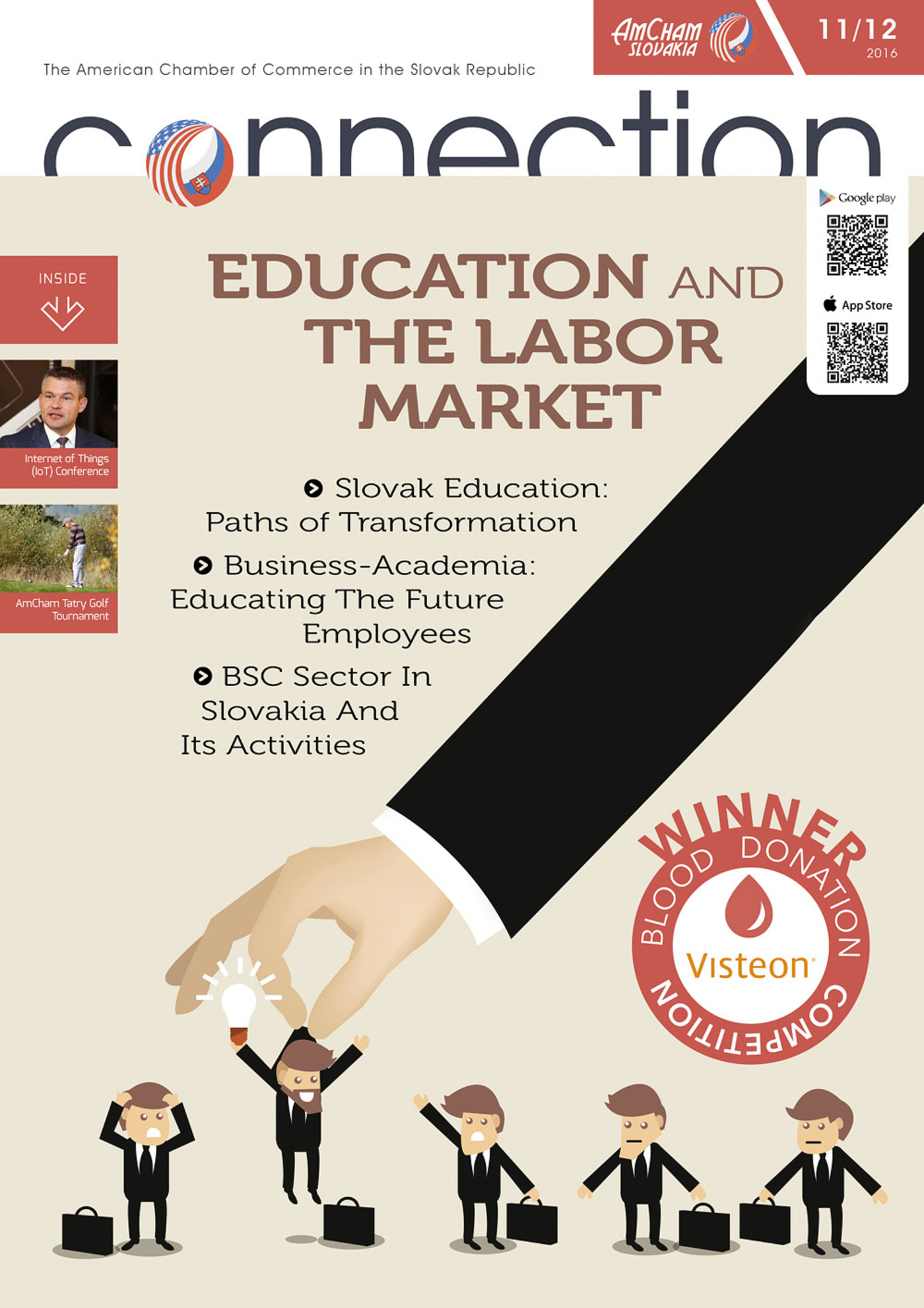
Download PDF
- Adjusting to the era of knowledge society
- Education in a fluid world: how to prepare for changes
- Financial education in Slovakia: A look behind the numbers
- We do not just wait for changes — we implement them and achieve results
- A long path to a functional education system
- Slovakia among top destinations for the SSC sector
- Executive search: current trends and challenges
- Sabbatical leave in Slovakia
- New regulation of cross-border posting of workers
- A quick guide to effective training policy for finance positions
Education and the Labor Market
Adjusting to the era of knowledge society
Governments around the world strive to provide all children with access
to inclusive and equitable quality education. Through schooling, each
country tries to equip children with skills, competence and character
qualities that will make them successful in their professional and
private lives. Besides individual well-being it is the prosperity of
societies that is at stake and education policy makers are aware of
that.
Education in a fluid world: how to prepare for changes
It is becoming apparent that traditional education is no longer able to equip young people with necessary skills, and unless education quickly undergoes substantial change, Slovakia will not manage a transition into the upcoming age of technological and social development. The change must happen in the way we think of education.
Financial education in Slovakia: A look behind the numbers
The level of financial literacy of Slovak 15 year-olds is below the OECD average. About one-fifth of students do not even have a basic level of knowledge. These are the results of PISA testing in 2012 on the ability of students to take effective financial decisions and make financial plans.
We do not just wait for changes — we implement them and achieve results
Dual Education in Slovakia was launched in September 2015. The press pointed out the initial limited success or perhaps the partial failure of the concept. The number of interested employers dropped from 170 to 89 companies joining the scheme, which meant that of the original 1448 students, only 444 were offered a place. However, this academic year, the number of employers has increased to 142 and the number of trainees increased to 1121.
A long path to a functional education system
Vladimír Burjan has been one of the most vocal and respected critics of the deficiencies of the Slovak education system for years. His criticism has always been constructive, based on his first-hand experience. His experience covers more than three decades in various positions within the education field. Earlier this year, he accepted the position of an external advisor to the current Minister of Education, a move which was not completely expected. However, his motivation remains unchanged – to use every opportunity to improve the Slovak education system.
Slovakia among top destinations for the SSC sector
The sector of shared service centers represents one of the key divisions of Grafton Slovakia. For more than six years, Grafton Slovakia delivers comprehensive analyses for the Slovak SSC/BPO (Shared Service Centers/Business Process Outsourcing) industry while providing qualified monitoring of HR trends in this particular segment. Interesting facts and key trends in SSC/BPO are presented by Katarína Bobotová, Operations Manager Slovakia.
Executive search: current trends and challenges
The 2016 World Executive Search Congress took place on September 26 and 27 in London. This article summarizes three trends which dominated the discussions and are most likely to shape the future of the global headhunting industry.
Sabbatical leave in Slovakia
Sabbatical leave is a relatively unknown term to many people in Slovakia. It was introduced here in its formal sense by international companies but as yet has not been given any legal status in Slovak legislation. It is an opportunity offered by an employer to employees as a reward for the loyalty and dedication they have demonstrated to that employer. It enables the employees to take a well-earned break and to recharge batteries or pursue personal interests.
New regulation of cross-border posting of workers
As of June 18, 2016, a new Act No. 351/2015 Coll., on cross-border cooperation in the posting of employees for the performance of work during the provision of services came into effect.
A quick guide to effective training policy for finance positions
Train people to develop successful finance teams, ensure succession planning and to be ready for more advanced roles and future challenges – be at the right time in the right place and ready.

Follow us